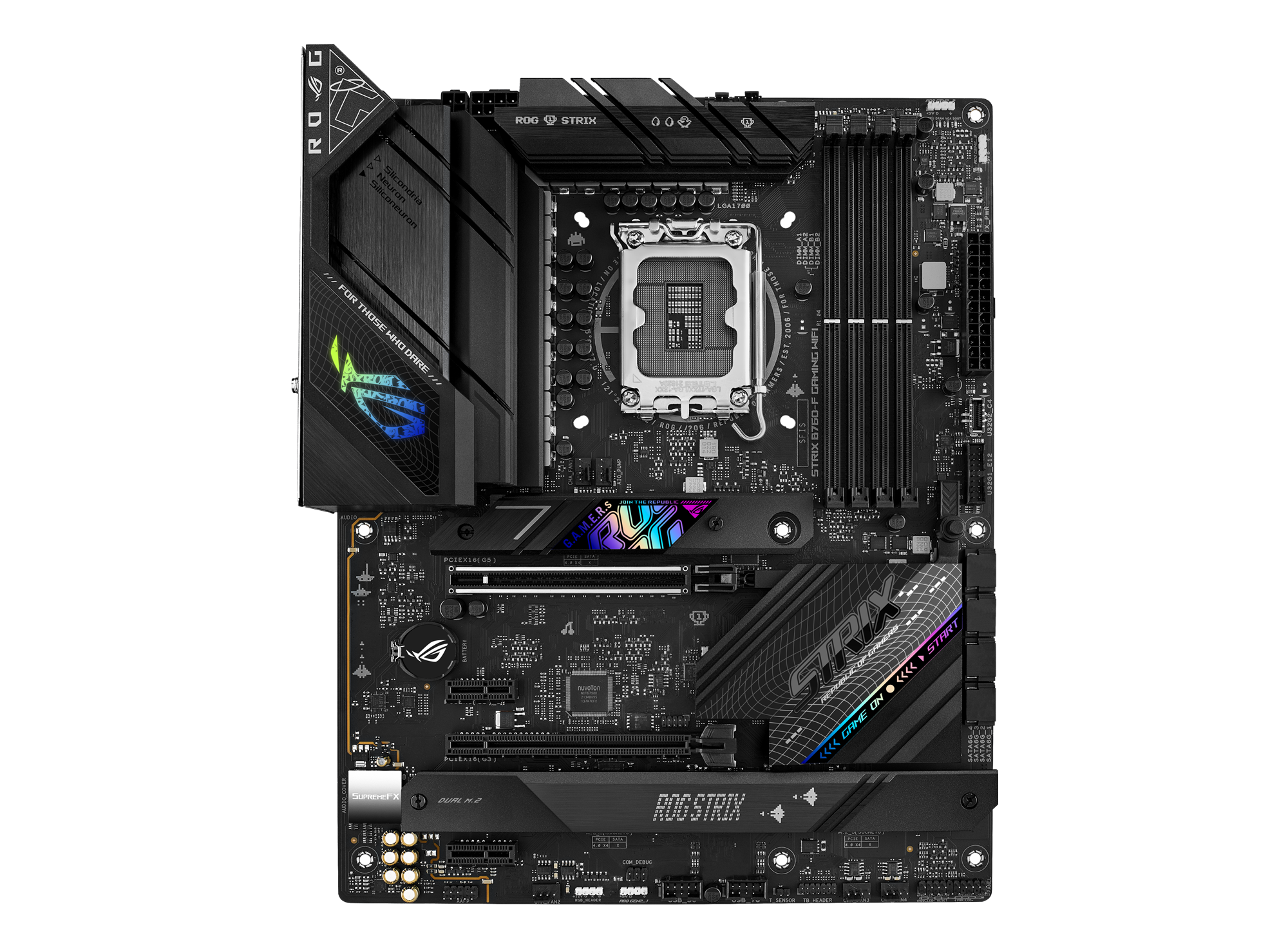I’ve made 2 almost identical PC builds in 2023 (the difference is in GPU only):
1) ASUS ROG STRIX B760-F GAMING WIFI;
2) Intel Core i5-13400;
3) WD_BLACK SN770 NVMe SSD 2 TB High-Performance NVMe SSD, Gaming, PCIe Gen4, M.2 2280;
4) Corsair Vengeance RGB 32GB DDR5 RAM with 2 Modules (2x16GB) and Speed 5200 for Desktop (CMH32GX5M2B5200C40);
5) Corsair RM850x Shift 850W Full Modular 80 Plus Gold PC PSU;
6) Noctua NH-U12S chromax.black;
7) GPU Asus GeForce RTX 4070 12GB GDDR6X ProArt OC Edition Graphics Card and Gigabyte GeForce RTX 4070 12GB GDDR6X Windforce OC
8) CORSAIR iCUE 4000X RGB Mid-Tower ATX;
9) Windows 11 Pro; all updates installed.
10) ESET Smart Security Premium is on board.
Starting from December 2024 both PC started sporadically auto turn off during load or without load. After such auto turn off you cannot switch PC on. Only after some time it’s possible to switch on PC again.
What already was done:
Q-LED was showing problem with Video Card and Boot on both PCs. Both BIOS and Intel ME were updated, so now Q-LED is not showing any problem with any of the components.***
In addition, CPU on both systems was tested using Intel® Processor Diagnostic Tool - no problems were revealed. https://www.intel.com/content/www/us/en/download/15951/intel-processor-diagnostic-tool.html
BUT the “auto turn off and further impossible to switch on” problem still persists.
Any idea what shall be done further to eliminate the problem?
Thank you in advance.
***
BIOS and Intel ME update info

 rog.asus.com
rog.asus.com
Version 1805
12.8 MB 2024/11/12
"1. Updated with Intel microcode 0x12B to address elevated voltage requests during idle or light activity, further mitigating Vmin Shift instability issues.
2. The option to disable C1E in the BIOS has been removed to ensure it remains enabled, reducing processor stress and maintaining stability per Intel's recommendation.
Before running the USB BIOS Flashback tool, please rename the BIOS file (SB760F.CAP) using BIOSRenamer.
Updating this BIOS will simultaneously update the corresponding Intel ME to version 16.1.32.2473v3. Please note after you update this BIOS, the ME version remains the updated one even if you roll back to an older BIOS later. "
1) ASUS ROG STRIX B760-F GAMING WIFI;
2) Intel Core i5-13400;
3) WD_BLACK SN770 NVMe SSD 2 TB High-Performance NVMe SSD, Gaming, PCIe Gen4, M.2 2280;
4) Corsair Vengeance RGB 32GB DDR5 RAM with 2 Modules (2x16GB) and Speed 5200 for Desktop (CMH32GX5M2B5200C40);
5) Corsair RM850x Shift 850W Full Modular 80 Plus Gold PC PSU;
6) Noctua NH-U12S chromax.black;
7) GPU Asus GeForce RTX 4070 12GB GDDR6X ProArt OC Edition Graphics Card and Gigabyte GeForce RTX 4070 12GB GDDR6X Windforce OC
8) CORSAIR iCUE 4000X RGB Mid-Tower ATX;
9) Windows 11 Pro; all updates installed.
10) ESET Smart Security Premium is on board.
Starting from December 2024 both PC started sporadically auto turn off during load or without load. After such auto turn off you cannot switch PC on. Only after some time it’s possible to switch on PC again.
What already was done:
Q-LED was showing problem with Video Card and Boot on both PCs. Both BIOS and Intel ME were updated, so now Q-LED is not showing any problem with any of the components.***
In addition, CPU on both systems was tested using Intel® Processor Diagnostic Tool - no problems were revealed. https://www.intel.com/content/www/us/en/download/15951/intel-processor-diagnostic-tool.html
BUT the “auto turn off and further impossible to switch on” problem still persists.
Any idea what shall be done further to eliminate the problem?
Thank you in advance.
***
BIOS and Intel ME update info
ROG STRIX B760-F GAMING WIFI | Gaming motherboards|ROG - Republic of Gamers|ROG Global
Get more FPS with the ROG Strix B760-F, thanks to its hyperfast DDR5 support and best-in-class power solution for Intel 13th Gen processors.
Version 1805
12.8 MB 2024/11/12
"1. Updated with Intel microcode 0x12B to address elevated voltage requests during idle or light activity, further mitigating Vmin Shift instability issues.
2. The option to disable C1E in the BIOS has been removed to ensure it remains enabled, reducing processor stress and maintaining stability per Intel's recommendation.
Before running the USB BIOS Flashback tool, please rename the BIOS file (SB760F.CAP) using BIOSRenamer.
Updating this BIOS will simultaneously update the corresponding Intel ME to version 16.1.32.2473v3. Please note after you update this BIOS, the ME version remains the updated one even if you roll back to an older BIOS later. "

